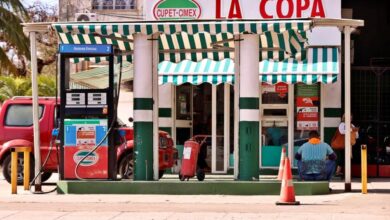The Prison Crisis in Ecuador May Be a Harbinger of the One in El Salvador
More than 40 deaths in prison riots in Ecuador may be a harbinger of the implementation of Nayib Bukele's prison policy. The causes of the prison crisis in Ecuador are repeating in El Salvador.

Photo: Freepik
LatinAmerican Post | Santiago Gómez Hernández
Listen to this article
Leer en español: La crisis carcelaria en Ecuador puede ser un presagio de la de El Salvador
The situation of prisons in Ecuador is worrying. The South American country registers at least 43 people dead due to the prison riots that occurred last weekend in the Santo Domingo prison in the center of the country. In addition to those who died with a knife, there was also an escape of 220 prisoners, of which 108 are still free.
However, the lack of control in prisons in Ecuador is not a new phenomenon. In 2021, 3 coordinated riots were recorded in 3 prisons, leaving 78 dead. According to official figures, there are more than 300 deaths in these circumstances in 15 months.
Read also: Latin America in summary: Chaos in prison in Ecuador and financing of the environment in Colombia
The Government of Guillermo Lasso blames this crisis on an attack by various mafias associated with the drug trafficking business that are trying to seize power within the detention centers. However, these events are the consequences of a series of internal fights between criminal gangs in these prisons. This, in turn, is the response to a prison crisis and a judicial policy that has created, as a consequence, a favorable breeding ground for criminal power.
???? Ecuador se cae a pedazos ????
Iniciamos la semana con una nueva masacre carcelaria. Toda mi solidaridad y apoyo a los familiares de las víctimas. ¿Cuántos asesinatos debemos esperar para que el Gobierno implemente un plan eficiente para frenar la violencia en las cárceles? 1/3 pic.twitter.com/xpqYGoY4zd— Ronny Aleaga Santos (@RonnyAleagaS) May 9, 2022
Several organizations have warned that this is due to conditions of overcrowding, injustice, and corruption, which have become the causes of these disasters that we are seeing
The report of the Inter-American Commission on Human Rights of Persons Deprived of Liberty (IACHR) in Ecuador, warned that this is due to various factors such as the weakening of institutions; incarceration and drug policy; overcrowding and the creation of mega-prisons; the exclusive use of preventive detention; the legal and administrative obstacles for the granting of penitentiary benefits; pardons and conditions of detention.
The solution can almost be summed up in orientation towards rehabilitation centers and not revenge centers. The conditions for prisoners must be dignified and opportune. Overcrowding and lack of guarantees cannot be tools to control the population deprived of their liberty. On the contrary, they must be a guarantee that allows prisoners to behave well and that when they are released again, they comply with the goal of non-repetition.
The paradox in the area is that while Ecuador is experiencing one of the worst prison population crises in Latin America, El Salvador is repeating the same patterns and the consequences may be similar. The offensive recently launched by President Nayib Bukele against gangs and maras in Central American territory coincides in several aspects with those that the IACHR has determined to be the cause of the current tragedy.
Due to a wave of violence, the Salvadoran government ordered a series of operations to capture and prevent violence in the streets. However, in El Salvador, the consequences of this policy, such as overcrowding and lack of food for new and old prisoners inside prisons, do not seem to be a cause for concern. On the contrary, Bukele has threatened criminals, telling them that as long as the violence in the country does not decrease, the consequences will be paid by the friends or associates of the gangs that are today in the custody of the State.
In just one month, authorities announced the arrest of 20,000 gang-related people. Although this is good news, if it is found that they are criminals who must pay sentences, the lack of a serious prison policy that is far from punitive populism can have serious consequences. What Ecuador is experiencing today may be what El Salvador will experience in the future.
You may also be interested in: Maras in El Salvador: Who is Nayib Bukele Facing?
And although the war against the Maras today seems reduced (compared to a couple of weeks ago) the consequences can be seen in the near future. This is why, accompanied by a wave of arrests, a much more institutional response must always come hand in hand with guarantees of rehabilitation. Likewise, the non-violation of rights and the creation of more significant opportunities for future generations are necessary. If this is not the case, this will only be a cloth of lukewarm water that will not solve the causes of violence in Ecuador, or in El Salvador, or in the region.




